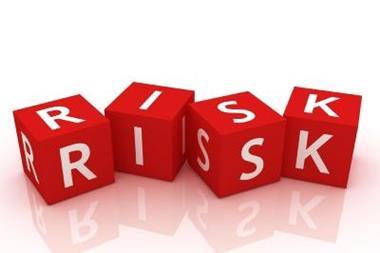What part can business play in making the change towards a sustainable economy? Nathan Skinner reports on a recent conference
What might a sustainable enterprise economy look like? How can sustainability help meet some of the challenges of the twenty first century? These were billed as questions to be discussed at a recent meeting of academics, activists and public and private sector professionals. The conference, whose theme was A Conversation about the future: Sustainable enterprise, took place at the Eden project in Cornwall between the 24 and 26 October.
A range of people, interested in sustainability from a social or entrepreneurial point of view, were invited to take part in the discussions. Partners in the project included the UN Global Compact, a voluntary corporate responsibility initiative, Coventry University, Boston College Centre in the US, and the Eden Project.
Advocates of the sustainability movement say the current economic and political system can be characterized by a democratic deficit, in which a lack of transparency, accountability and participation are barriers to change. The transition to sustainability, say supporters of the idea, requires a range of responses. These include new forms of collaboration between governments, the private sector and civil society. The goal of the conference was to facilitate precisely this conversation.
Malcolm McIntosh, from the Applied Research Centre in Human Security at Coventry University, commented: 'This conference is about hope and excitement…It is held in the hope of making a new future for life on planet Earth.'
Those in attendance discussed the role of enterprise in fostering peace, security, human rights, and sustainable development. Bringing together the principles of sustainable development with the principle of rewarding enterprise and innovation was recommended as a key step forward.
Corporate social responsibility has become an important item on boardroom agendas. But Sandra Waddock of the Carroll School of Management at Boston College had doubts. 'Has corporate citizenship failed to make enterprise sustainable?’ she asked. She said that corporations should go beyond CSR and rethink their role within society. The ensuing debate revealed a split of opinion between those calling for fundamental change to match the size of the problem and others who backed incremental steps to achieve the same goals.
The event proved an opportunity to learn from the experience of others. Mark Swilling, co-founder of the Sustainability Institute at Stellenbosch University, discussed ways in which individuals and communities have come together in South Africa to form social enterprises, collaborative partnerships and regeneration projects.
Cate Le Grice Mack, founder of Norwood Rare Breeds Organic Farm, explained how she redefined the UK farming model to create a more sustainable mode of food production.
Phil Smith, vice president technology, CISCO systems, showed how the technology company fostered employee engagement and energy savings with a commercially minded sustainability project.
“Sustainability can’t be bolted on. It has to be part of the core business strategy
Peter Lacy, executive director of the European Academy of Business in Society, asked the audience to look on sustainability as corporate opportunity, not risk. Those corporations pursuing innovative strategies are the ones performing best in indices, he revealed. Describing the tension between natural resource limitations, societal CSR expectations and increasing competition from the BRIC (Brazil, Russia, India, China) quartet, he said most decision makers were driven to change by pressure from consumers and employees.
Following on from this debate, Tony Kendle, foundation director, Eden Project, posed the question of whether or not an organisation's behaviour could be changed through embedding CSR into strategic decision making.
Mads Øvlisen, chair of Novo Nordisk and member of the UN Global Compact (UNGC) Board, said a surge in UNGC membership evidenced a marked change in business thinking. He described his own organisation’s work to limit the spread of diabetes in less developed countries, despite the fact that Novo Nordisk is the world's biggest supplier of diabetes care.
'The business benefits from improved reputation,' said Øvlisen, adding: 'We have been voted the best place to work on several occasions. Our employees say this is because of our corporate values and the way they are built into the strategy of the company.'
Shell, not famous for its closeness to the environmentalist movement, also described how it was stepping up to the energy challenge by accelerating efficiency and decarbonising energy supplies. 'If sustainability is relevant to your organisations, it has to be relevant to Shell,' said James Smith, chairman of Shell UK, in his opening remarks. 'Sustainability can't be bolted on. It has to be part of the core business strategy’.
Referring to energy being a crucial enabler to help lift people out of poverty, Smith argued: 'Being strong at the core is vital to all the other aspects of sustainability.' And highlighting the importance of CSR, he said: 'Within a well supplied market customers can easily choose between products.
Being a good corporate citizen provides an opportunity to differentiate your product and retain customers, as well as key talent.'
The event closed with a presentation from Tim Smit, co-founder of the Eden project. Hope was the theme of the event, and Smit's closing message encapsulated this expectation when he compared the significance of the currently changing attitudes in social and environmental matters to the cultural shift of the Renaissance or the Reformation. 'Within 30 years almost every major company will be a social enterprise,' he predicted.
Postscript
Nathan Skinner is senior reporter, StrategicRISK




















No comments yet